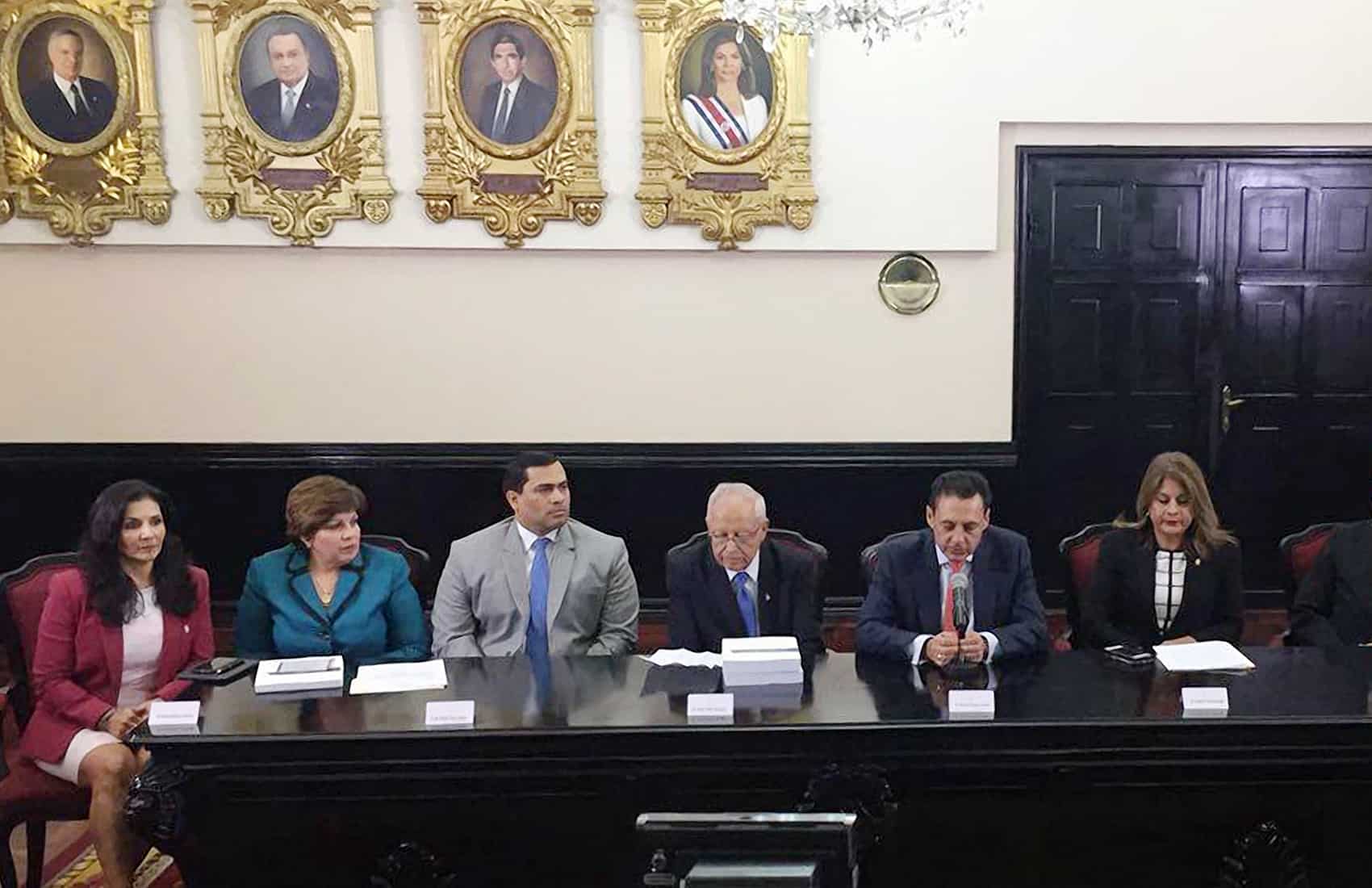The government’s 2017 budget proposal is 12 percent higher than the current year’s budget, thanks mostly to accumulated debt, the presidency said. Vice President and Finance Minister Helio Fallas submitted the government’s budget proposal to the Legislative Assembly last week at ₡8.9 trillion ($15.9 billion).
In comparison, the 2016 budget was just 0.8 percent higher than the one approved the previous year.
Besides debt, Fallas said mandatory allocations for public education, pensions and funds for public infrastructure projects were responsible for most of the requested increase for 2017.
Debt payments account for one-third of the proposed budget while the government’s normal operating expenses represent a little less than one-third.
The government plans to finance 54 percent of the budget with general revenue, while the remaining 46 percent will require financing.
Fallas said that despite the government’s “hard work to control the growth of public spending” mandatory funds set by legal and constitutional provisions account for 95 percent of the budget.
The minister said the government is very concerned about the high percentage of the budget that will require financing.
“Payment of the accumulated debt and interest from previous decades is the fastest growing component of the national budget. It almost represents the cost of maintaining a full other government,” Fallas said.
The minister noted that the gap between income and expenditure has seen sustained growth since 2009. The debt rose from 25 percent of the gross domestic product that year to almost half of GDP in 2016, he said.
Fallas also emphasized the need to pass fiscal reforms pending in the Legislative Assembly.
“If we don’t make decisions [on fiscal reforms] soon it will be increasingly difficult for us to fund social and economic programs that are essential for the country,” Fallas said.
President Luis Guillermo Solís said failing to pay the accumulated debt of several decades is not an option. He also said the government can’t just stop borrowing money because it needs the resources to fund necessary public works.
Leaders from various sectors signaled Thursday that the budget growth was excessive.
Solís said his critics are ignoring reality. “What lawmakers are not talking about are the reasons why the budget grew. The reason is our debt,” the President said.
Negative reactions
Social Christian Unity Party legislator Rosibel Ramos Madrigal, who chairs the legislative Committee on Financial Affairs, said the committee will subject the government’s expenditure plan to a detailed evaluation.
Ramos said that on first glance, she is concerned about the proposed budget’s low figures for public investment and the potential impact on the country’s productivity.
Mario Redondo, from the Christian Democratic Alliance Party, said Friday that he had already spotted “excessive hikes in funds for food, travel expenses and others items that should be closely analyzed.”
Several business chambers expressed their disapproval of the government’s budget plan. Both the Union of Private-Sector Chambers and the Costa Rican Chamber of Industries publicly called the proposed 12 percent budget growth excessive.
In public statements, the chambers said the budget total doesn’t match the Central Bank’s relatively low projected inflation for next year, 3 percent, and the healthy projected GDP growth, 4.3 percent.
The Assembly Committee on Financial Affairs will begin discussing the national budget plan this week.
If approved by the committee, the national budget must be discussed and voted on in two separate rounds of debate by the full Assembly. The deadline to pass a national budget is Nov. 29.






